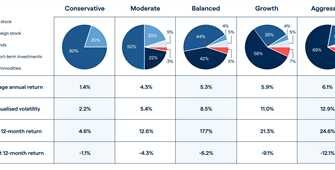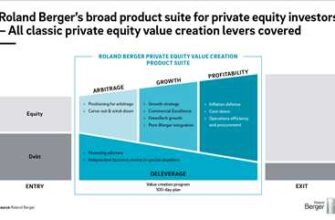
If you’re considering becoming an Airbnb host, now is a great time to start. With the growth of the sharing economy, many people are looking to maximize their revenue by renting out their property to guests. Airbnb offers a step-by-step guide that will help you understand how to start your own hosting business and make a profit.
One of the first things you’ll need to do is determine if your area is a viable market for Airbnb. You can do this by researching the rental market in your area and identifying factors such as high demand, tourist attractions, and a shortage of hotel accommodations. Another great resource for understanding the Airbnb market in your area is AvantStay, a platform that provides insights and data on vacation rentals.
Once you’ve determined that Airbnb hosting is right for you and your property, the next step is to create a listing. This is where you’ll need to make your property stand out from the rest and attract potential guests. Having a great listing description and high-quality photos will significantly increase your chances of getting bookings.
It’s important to understand that starting an Airbnb business can be financially challenging. There are costs involved such as insurance, cleaning fees, and maintenance expenses. You’ll need to determine the right pricing strategy to cover these costs while also making a profit. Researching comparable listings in your area will give you an idea of how much other hosts are charging.
In addition to financial considerations, it’s also crucial to focus on guest satisfaction and building a good reputation. Providing a high level of customer service and ensuring your guests have a great experience will lead to positive reviews and repeat bookings. Remember, word-of-mouth is a powerful marketing tool in the hospitality industry.
Joining the Airbnb business can be a lucrative opportunity if done right. By following the step-by-step guide provided by Airbnb, understanding the costs involved, and focusing on guest satisfaction, you can maximize your revenue and create a successful Airbnb hosting business. So, don’t wait until 2023, start letting guests into your property and experience the ultimate Airbnb adventure.
How To Start an Airbnb: The Ultimate Guide To Maximize Your Revenue in 2023
Welcome to the ultimate guide on how to start an Airbnb and maximize your revenue in 2023. If you’re thinking about entering the Airbnb business, you’re in for a great opportunity. With the right strategy and understanding of the market, you’ll be able to generate significant income without having to invest too much time or financial resources.
Step 1: Understand the Airbnb Market
To start your Airbnb business, it’s crucial that you have a good understanding of the market in your area. Do thorough research to determine if there is a demand for short-term rentals and identify any competitors in the market. Knowing the market will help you determine your target audience and set the right rental rates to maximize your revenue.
Step 2: Prepare Your Property
Before letting guests into your property, you need to make sure it’s in great condition. Have a clean, inviting space that will leave your guests satisfied and increase their chances of leaving a positive review. Consider investing in high-quality amenities and decorations that will enhance their experience.
Step 3: Become a Superb Host
Having great communication skills and providing excellent customer service is key to becoming a successful Airbnb host. Make sure you respond promptly to inquiries and address any concerns your guests may have. Going the extra mile to make their stay comfortable and memorable will increase guest satisfaction and help build your reputation.
Step 4: Set Competitive Rental Rates
To maximize your revenue, you need to set competitive rental rates. Check out similar listings in your area to get an idea of the average costs. Additionally, consider adjusting your rates according to the season, local events, or any other factors that may affect demand. Find the right balance between profitability and attracting guests.
Step 5: Market Your Airbnb Listing
Once your listing is ready, it’s time to market it to potential guests. Utilize all available marketing channels such as Airbnb’s platform, social media, and online travel websites. Highlight the unique features and advantages of your property to attract more bookings.
Step 6: Manage Your Bookings and Finances
As your bookings start rolling in, make sure you have an efficient system in place to manage them. Use a reliable property management software or consider partnering with a company like Avantstay to handle the logistics for you. Additionally, keep track of your rental income and expenses to ensure you’re financially sound.
Conclusion
Starting an Airbnb business can be challenging, but with the right approach, it can also be financially rewarding. By understanding the market, providing a great guest experience, and maximizing your revenue through competitive pricing and effective marketing, you’ll be well on your way to success. So don’t wait another minute – start planning and take the first step towards establishing yourself as a successful Airbnb host in 2023!
A step-by-step guide to starting an AirBNB business
Starting an AirBNB business can be a great way to maximize your property’s revenue and have a profitable experience in the rental market. However, it’s important to understand that starting this type of business comes with its own set of challenges and costs.
Here is a step-by-step guide to help you start your own AirBNB business:
Step 1: Determine if it is financially viable
Before jumping into the AirBNB business, it’s crucial to determine if it will be financially viable for you. Consider factors such as the high costs of owning and maintaining a property, the market demand in your area, and the potential revenue you can generate.
Step 2: Understand the legal requirements
Make sure to research and understand the legal requirements for running an AirBNB business in your area. This may include obtaining necessary permits and licenses, adhering to zoning regulations, and understanding any tax implications.
Step 3: Set up your AirBNB profile
Create a compelling AirBNB profile that highlights the unique features of your property and showcases your hosting experience. This will help attract potential guests and build a strong reputation.
Step 4: Prepare your property
Gather all the necessary amenities and furnishings to ensure that your guests have a comfortable stay. Pay attention to details such as cleanliness, decor, and safety to enhance guest satisfaction and positive reviews.
Step 5: Determine the right pricing
Research the market and set competitive prices for your property. Consider factors such as location, amenities, and the overall demand in your area. It’s important to find a balance between maximizing revenue and attracting guests.
Step 6: Market your property
Utilize different marketing channels to reach potential guests and promote your AirBNB business. This can include creating a website, using social media platforms, partnering with local tourism organizations, and listing your property on other rental platforms such as AvantStay.
Step 7: Provide a great guest experience
When your guests arrive, make sure to provide a warm welcome and excellent customer service. Address any concerns or issues promptly to ensure guest satisfaction and positive reviews, which will help build your reputation.
Step 8: Continuously improve
Regularly evaluate and improve your AirBNB business by incorporating guest feedback and making necessary adjustments. Stay up-to-date with industry trends and implement new strategies to stay competitive in the market.
Step 9: Monitor your financials
Keep a close eye on your financials and understand the costs and profitability of your AirBNB business. This will help you make informed decisions and ensure that you are achieving your financial goals.
Step 10: Conclusion
Starting an AirBNB business can be a challenging yet rewarding venture. With the right planning, experience, and understanding of the market, you can create a successful and profitable business in the vacation rental industry.
Remember, it’s important to do thorough research and not rush into starting an AirBNB business without having a clear understanding of the costs, challenges, and requirements associated with it.
Sources: Airbnb.com, AvantStay.com
Letting the right property

When starting an Airbnb business, one of the most crucial steps is finding and letting the right property. Having a property suitable for short-term rentals is key to maximizing your revenue and creating a great experience for your guests.
First and foremost, you need to determine if your property is viable for Airbnb hosting. Consider factors such as location, amenities, and the demand in the area. Research the market and understand what guests are looking for in your area. For example, if you have a property in a popular tourist destination or near a major attraction, you may have a high demand for short-term rentals.
Once you have determined that your property is suitable for Airbnb hosting, the next step is to prepare it for guests. Make sure it is clean, well-maintained, and has all the necessary amenities. Consider investing in small upgrades or renovations to make it more appealing to guests.
Having a good reputation is essential for success on Airbnb. Guests rely heavily on reviews and ratings when making their booking decisions. Be a responsible host, provide a great experience for your guests, and respond promptly to any inquiries or issues during their stay. This will help you build a positive reputation and attract more bookings.
Another important aspect of letting the right property is understanding the financials. Determine how much you can realistically charge for rent and calculate your costs such as maintenance, utilities, and cleaning fees. It’s important to factor in these expenses to ensure that you are financially viable and that hosting on Airbnb will be profitable for you.
In conclusion, letting the right property is an essential step in starting your Airbnb business. Take the time to research the market, understand the demand in your area, and prepare your property to provide a great guest experience. By choosing the right property and understanding the financials, you’ll be on your way to becoming a successful Airbnb host.
Conclusion
Starting an Airbnb business can be a challenging endeavor, but with the right step-by-step guide and the willingness to learn from your experience, it can also be a financially viable and satisfying venture.
When determining if hosting on Airbnb is the right choice for you, it is important to understand the costs involved, such as property rental fees, maintenance and utility costs, and the fees charged by Airbnb. Another factor to consider is the potential revenue you can generate from your property, as well as the high demand for short-term rentals in many areas.
Having a great reputation as a host is crucial, as it will attract more guests and maximize your rental profit. Market research is also important to understand the competition in your area and determine how you can differentiate yourself from other hosts.
Letting out your property on platforms such as Airbnb can be a fantastic window to showcase your property and provide guests with a unique and authentic experience. AvantStay is another great source of information and resources for hosts looking to join the Airbnb business.
In conclusion, by following this guide and understanding the ins and outs of the Airbnb business, you can start your own successful hosting journey. Remember to prioritize guest satisfaction, market your property effectively, and take care of the financial aspects to ensure that you are on the path to success. With the right strategies and commitment, you can achieve your goals and make the most of the opportunities that Airbnb provides.
Sources
When starting an Airbnb business, it is important to have a variety of sources to maximize your revenue and ensure a financially viable venture. Here are a few sources to consider:
1. Hosting Yourself: This is the ultimate source of revenue when starting an Airbnb business. By renting out your own property, you can have much control over the market and the costs associated with letting out your space.
2. AvantStay: Another great source for revenue is through partnering with AvantStay. AvantStay is a high-end property management company that specializes in short-term and vacation rentals. By working with AvantStay, you can determine the right market for your area and start earning a profit without having to manage the property yourself.
3. Understanding the Market: It’s essential to understand the market in your area. Determine the demand for short-term rentals and assess the competition. This will help guide your decisions on pricing, guest satisfaction, and the overall success of your Airbnb business.
4. Building a Reputation: Building a strong reputation as an Airbnb host is crucial for success. Positive reviews and feedback from guests will attract more bookings and increase your revenue. Provide a high level of customer service and ensure a clean and welcoming space for guests.
5. The Ultimate Guide: Many resources, such as guidebooks and online tutorials, can help you navigate the world of Airbnb hosting. These step-by-step guides provide valuable insights and tips on how to start and run a successful Airbnb business.
6. Determining Costs: Understanding the costs associated with running an Airbnb business is essential for financial planning. Consider expenses such as cleaning fees, maintenance costs, and utilities. By accurately determining these costs, you can set competitive prices and ensure profitability.
In conclusion, joining the Airbnb business can be a challenging yet financially rewarding venture. With the right sources and a solid understanding of the market, you’ll be well on your way to starting a successful Airbnb business.










